July 19, 2021
The 21st Century Cities Initiative (21CC) at Johns Hopkins University promotes the research of graduate students working toward a PhD degree with a 21CC Research Award for innovative dissertation research focusing on policy-relevant urban research that closely aligns with 21CC’s interest areas. In 2021, 21CC awarded 10 PhD students grants to support their research across a variety of urban issues from police reform to education to healthy food to environmental toxins in Baltimore City and cities across the US.
Citizen Participation in Determining Public Safety Policy: Understanding the Degree and Effect of Participatory Governance in Recent Police Reform Efforts
Awardee: Abigail Baum, Health Policy and Management
Spurred by the fatal shootings of and overt use of force against Black people by police officers, citizens are demanding public safety reform that acknowledges the history of exclusion and discrimination of Black people from and by the American police system. By examining how citizens participate in the police reform decision-making processes, this dissertation seeks to address the challenges of social exclusion, police legitimacy, and conflicting systems of citizen expression that have come to define much of the Black experience in America. I will explore the degree of “meaningful access to decision-making” in two components of policy formation: (1) the design and implementation, and (2) the evidence development process used to inform and analyze policy. Aim 1 will identify the landscape of formalized democratic participation in the development of public safety reform policies by using a multiple-case design study of 6-10 cities with recent fatal police shootings of unarmed Black people and that have introduced reform. Aim 2 will use a two-case comparison to explore how the participation components of police reform policies are implemented and utilized, as well as the effect of participation in evidence development. Aim 3 will explore how community members can transform the analysis and recommendations of social policy research into “meaningful access to decision-making”.
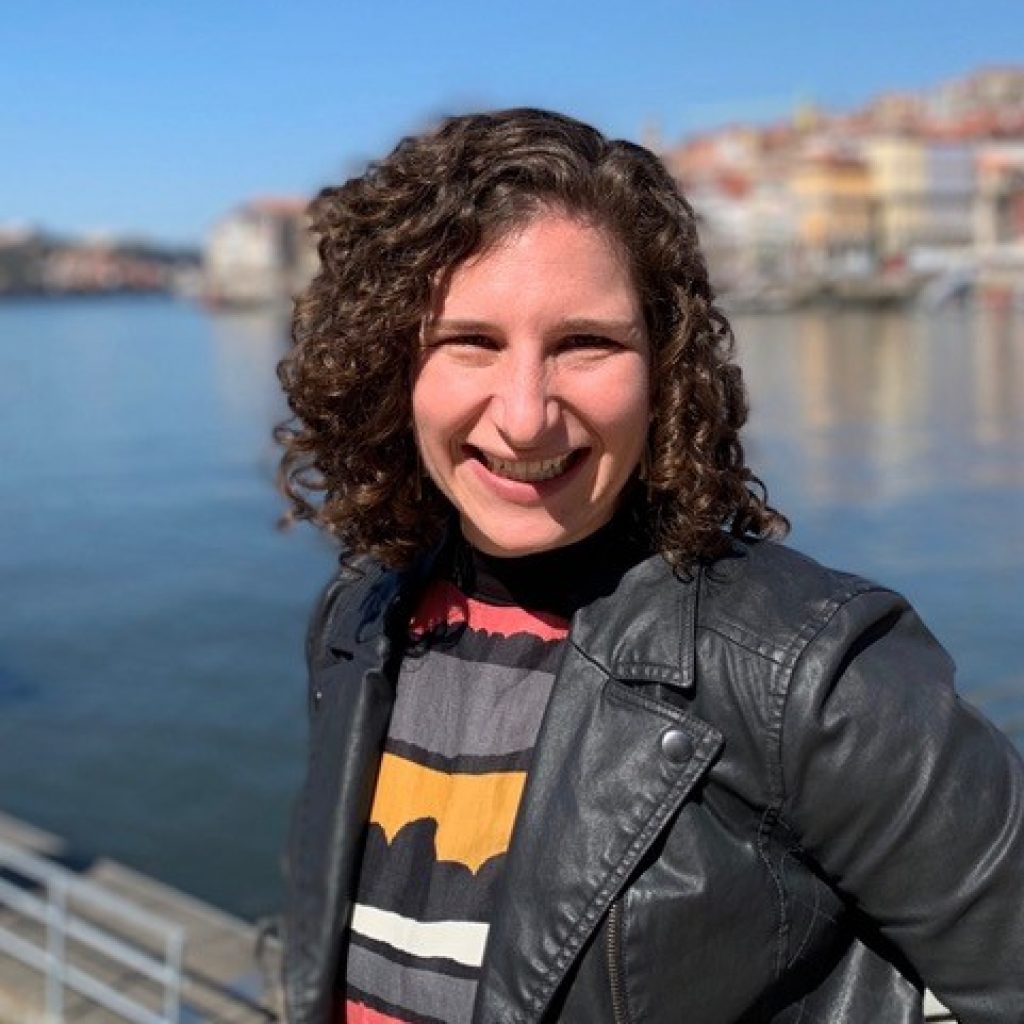
Abigail Baum is a doctoral candidate in the department of Health Policy and Management at the Johns Hopkins Bloomberg School of Public Health. Abigail’s research interests include supporting mechanisms through which people most affected by social welfare policy participate in the decision-making process from design to implementation and evaluation. Prior to coming to Hopkins, Abigail was a senior associate on the Health Impact Project, a collaboration of the Robert Wood Johnson Foundation and The Pew Charitable Trusts, a research associate at the Metropolitan Housing and Communities Policy Center at the Urban Institute, and an associate at Community Science. She holds a MPH and MSW from the Brown School at Washington University in St. Louis in 2012, and a BA from Carleton College in 2008, majoring in American Studies and Educational Studies.
Tailoring Chemical Risk Assessment Methods to Urban Environments: Quantifying the Joint Contributions of Metal Mixtures and Psychosocial Stressors on Cardiovascular Disease
Awardee: Andrea Chiger, Environmental Health and Engineering
Cardiovascular disease presents a huge public health and economic burden, particularly in urban low-income and minority communities. Chemical exposures and psychosocial stressors are known risk factors for cardiovascular disease. People living in urban environments – particularly in disadvantaged areas – are simultaneously exposed to numerous metals and neighborhood-level stressors, such as crime and blight. Emerging research suggests that these simultaneous exposures can interact to worsen health. For example, lead exposure is associated with higher increases in blood pressure in people with high stress than in those with low stress. Environmental decision-making, however, currently relies on outdated risk assessment methods that only consider exposures to one chemical at a time. This project will strengthen the body of evidence on exposures to multiple chemical and non-chemical stressors, helping to lay the foundation for more holistic methods to support decision-making. In Aim 1, I will investigate simultaneous exposures to mixtures consisting of 11 metals. Aim 2 will examine the effects of exposures to individual metals as well as individual- and community-level stress. In Aim 3, I will assess co-exposures to both metal mixtures and psychosocial stressors. This project will help encourage use of holistic risk assessment methods that promote health-protective and equitable environmental regulations and urban redevelopment.
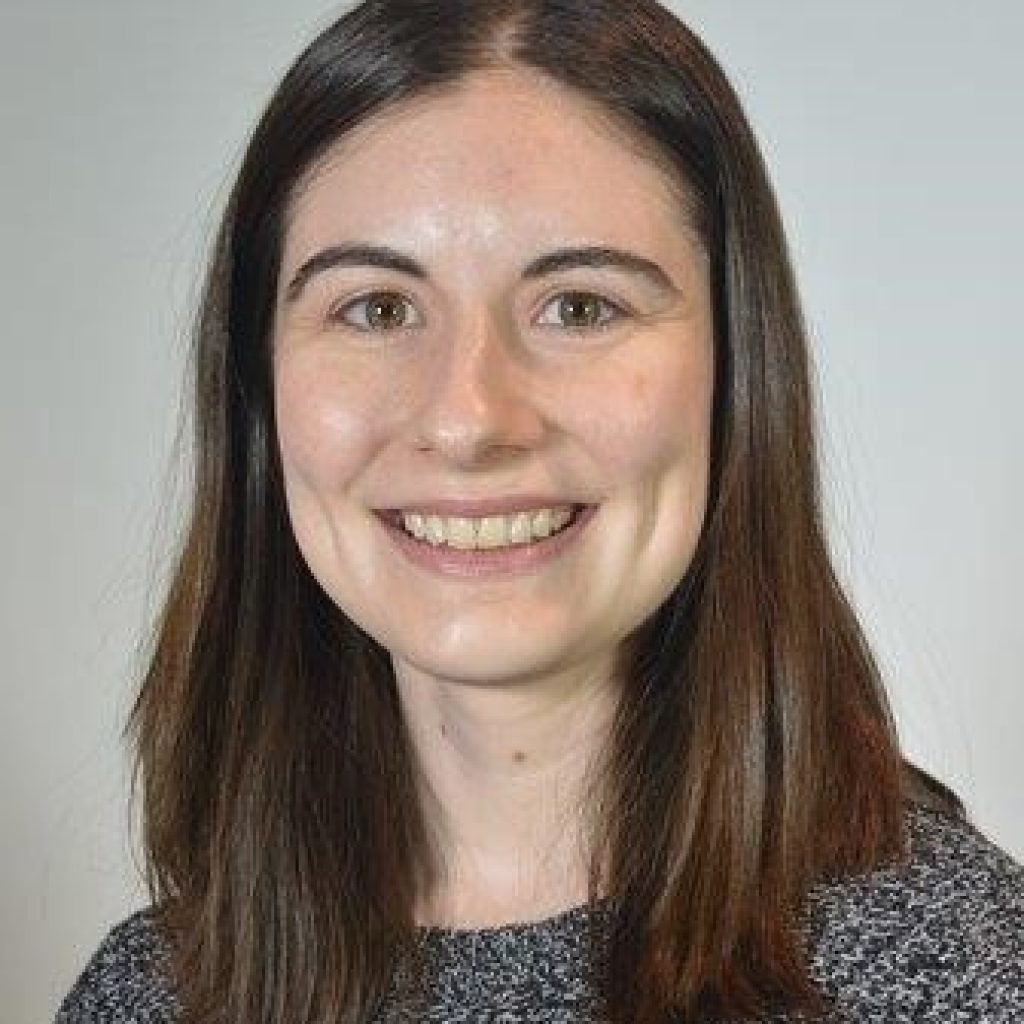
Andrea Chiger, MPH, is a third-year PhD student in the Department of Environmental Health & Engineering. Her research interests include cumulative risk assessment and environmental justice. Prior to coming to Hopkins, she was a Senior Analyst at Abt Associates, where she consulted for EPA, CDC, and non-profit organizations on a variety of environmental health topics. She holds an MPH in Environmental Health from Boston University and a BA in Neuroscience and Behavior from Vassar College.
Examining the Association between Social Infrastructures and Household Food Security in the United States
Awardee: Gabby Headrick, International Health
Food insecurity has reached unprecedented levels as a result of the COVID-19 pandemic compounding preexisting health, income, and social disparities. To cope with food insecurity, households use a range of strategies (e.g., couponing, rationing portions, skipping meals) paired with both formal and informal social infrastructures and trade-offs between the two. Formal social infrastructures, such as the Supplemental Nutrition Assistance Program (SNAP) insufficiently meet food needs, as evidenced by nearly half of SNAP participants reporting food insecurity in 2019. Informal social infrastructures, such as social networks, can fill-in for the shortfalls of formal social infrastructures, but additional research is needed to understand this tradeoff. The goal of this project is to understand how families’ access and utilization of formal and informal social infrastructures affect household food security. Aim 1 of this proposed study will examine how disruption in SNAP benefits is associated with household food security status and use of informal social infrastructures (e.g., food pantries or support from family). Aim 2 will characterize the egocentric social networks of low-income, urban households in Buffalo, New York and examine how network characteristics are associated with household food security status. Aim 3 will explore how tradeoffs between informal and formal social infrastructures among urban, low-income families in Buffalo promote or undermine food security. Findings from this work will inform researchers, advocates, and policymakers at a crucial time when COVID-19 has motivated systems and structural changes to ensure all Americans have access to affordable, nutritious, and culturally preferred food.
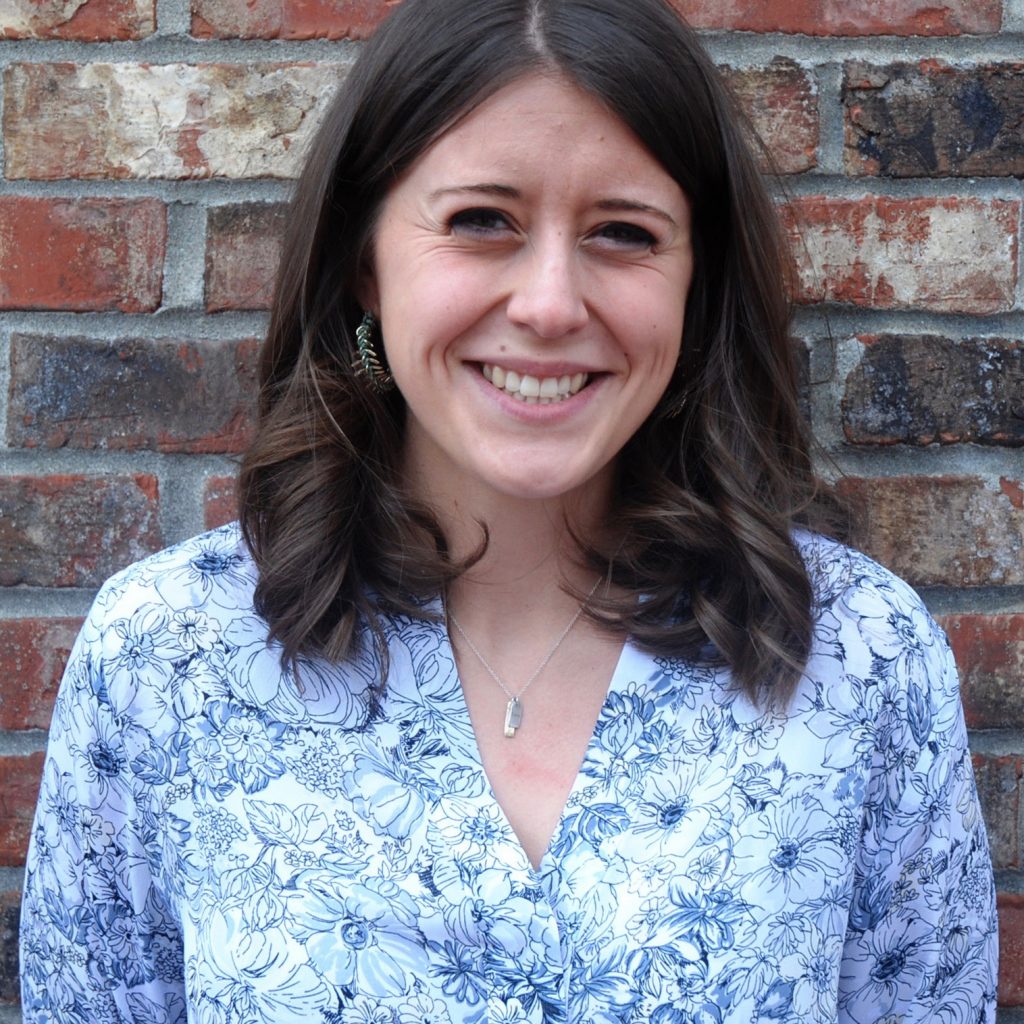
Gabby Headrick is entering the third year of her PhD in the Human Nutrition Program in the International Health Department at the Johns Hopkins Bloomberg School of Public Health. Her research focuses on the determinants of food security in the United States, program and policy solutions to food insecurity in the United States, and system solutions to promoting equitable food access. During the summer and fall of 2020, Gabby supported the Baltimore Food Policy Initiative throughout Baltimore’s COVID-19 emergency food response and planning for future food system resiliency and equity. Prior to starting her PhD, Gabby worked as a public health dietitian at the local public health department in Cambridge, MA supporting policy, system, and environmental changes within Cambridge’s food environment. She completed the Masters of Science of Public Health/Registered Dietitian coordinated program at Johns Hopkins Bloomberg School of Public Health in 2018 and her Bachelors of Science degree in Dietetics, Nutrition, and Food Sciences at the University of Vermont in 2015.
Characterizing Chronic Metal Exposure and Implications for Neurobehavioral Health in the US Gulf States
Awardee: Joyce Lin, Environmental Health and Engineering
Research on neurobehavioral effects related to metal exposures has been ongoing for many decades, but growing clinical evidence also implicates metals in the development of Alzheimer’s and Amyotrophic Lateral Sclerosis. With rising rates of neurodegenerative diseases in the country, there is critical interest in characterizing low-level metal and metal mixture effects for industry adjacent communities and other highly exposed populations. However, little is known about which sources present the greatest risk for biological metal uptake and where effective exposure mitigation strategies can be implemented. The US Gulf region, in particular, with its prolific petrochemical and industrial operations, history of racial disparities, and geographic susceptibility to frequent natural and manmade disasters, presents a compelling risk for chronic metal exposure and a critical setting for metal exposure mitigation research. This work combines a toenail metal biomarker with traditional spatial epidemiologic methods to pinpoint environmental risk factors of metal exposure and associated neurobehavioral effects in an established, decade-long, multi-state cohort of Gulf residents from Louisiana, Mississippi, and Alabama. The toenail biomarker used in this study is better suited to assess chronic, low-level metal mixture effects than blood or urine and offers an invaluable opportunity to address the critical multi-pollutant exposure concerns in this population. Findings from this research have the potential to inform revisions to existing metal exposure regulations, stimulate more rigorous enforcement procedures, and guide novel mitigation strategies to reduce metal exposure from hazardous facilities and land uses in the Gulf.

Joyce Lin is a PhD candidate in the Department of Environmental Health and Engineering at the Johns Hopkins Bloomberg School of Public Health. Her research interests center around characterizing the adverse physiologic and neurobehavioral effects related to built environment exposures. She has extensive experience in air pollution measurement and her ongoing work leverages exposure assessment and environmental epidemiology to support policy and development decisions across urban settings. She holds a BA in Public Health Studies from the Johns Hopkins University.
Understanding the Implementation and Impact of a Healthy Beverage Initiative in New York City’s Public Hospital System
Awardee: Roopa Kalyanaraman Marcello, Public Health
In recent decades, obesity has risen to become a leading public health issue across the nation, including in New York City (NYC), where 1 in 4 adults are obese. Simultaneously, sugar-sweetened beverages (SSBs) have become the leading source of added sugars in Americans’ diets and have emerged as a key risk factor for weight gain and cardiometabolic disease. While SSB consumption has fallen recently, rates remain higher among lower-income, Black, and Hispanic urban residents, who also bear a disproportionate burden of obesity, have greater access to unhealthy food and beverages, and are targeted by SSB marketing, underscoring the importance of changing norms about SSBs and reducing SSB consumption. Last year, NYC’s public hospital system launched a Healthy Beverage Initiative (HBI) that eliminated the sale of SSBs from the entire system. Over the past decade, nearly 50 hospitals and health systems across the country have launched similar initiatives, but evaluations remain limited, especially of those in cities. This dissertation research will use multiple methods to examine the HBI across its lifecycle, including its development and adoption, implementation, and impact among employees. Results of this research may inform advocates, policymakers, government agencies, and health systems about the adoption, implementation, and potential impact of similar initiatives.

Roopa Kalyanaraman Marcello, MPH, CPH, is a DrPH candidate at the Johns Hopkins Bloomberg School of Public Health. She is currently the Senior Director of Research and Evaluation in the Office of Ambulatory Care and Population Health at NYC Health + Hospitals, the largest public health care system in the nation, where she leads a system-wide initiative to improve the food environment across the H+H system. Previously, she was a program, policy, and communications consultant for government and private health organizations, and she worked for several years at the NYC Department of Health and Mental Hygiene on initiatives to reduce the burden of chronic diseases and to address emerging issues, including H1N1 influenza and opioid prescribing. Earlier in her career, she spent several years in top HIV research labs working toward the development of a vaccine. Roopa earned an MPH and certificates in health communication and vaccine science & policy from JHSPH and a BS in molecular biology with a minor in music performance from Yale University. She is certified in public health by the National Board of Public Health Examiners.
Evaluating the Climate Change and Nutrition Co-Benefits of the New York City Food Standards
Awardee: Elsie Moore, Environmental Health and Engineering
Food systems are a major source of greenhouse gas emissions. Cities worldwide have recognized the critical role of food systems for climate change mitigation and have committed to making their food systems more sustainable. There is a lack of evidence on what city-led interventions are effective and feasible in shifting to sustainable healthy diets. This project seeks to understand if food standards are an effective tool for promoting nutrition and environmental sustainability. To answer this question, this project works with New York City (NYC). NYC has committed to reducing red meat purchasing and phase out processed meats in city facilities. One way NYC is implementing this policy change is through the NYC Food Standards for Meals and Snacks Purchased and Served (“Standards”). The Standards are guidelines issued by the Department of Health and Mental Hygiene that apply to approximately 230 million meals and snacks served each year. The Standards were first implemented in 2008 and, historically, focused on nutrition, but the 2021 revisions incorporate environmental sustainability. This study will evaluate the climate change and nutrition co-benefits of the NYC Food Standards. It will estimate the greenhouse gas emissions of meals publicly served in NYC, explore the implementation of the 2021 revisions to the Food Standards, and evaluate nutrition and climate change co-benefits and tradeoffs. This project will inform NYC’s nutritional and environmental policies and will develop a methodology that US cities can use to evaluate the greenhouse gas emissions of their public meals. The lessons learned from this study can be leveraged to implement similar policies in cities around the world.
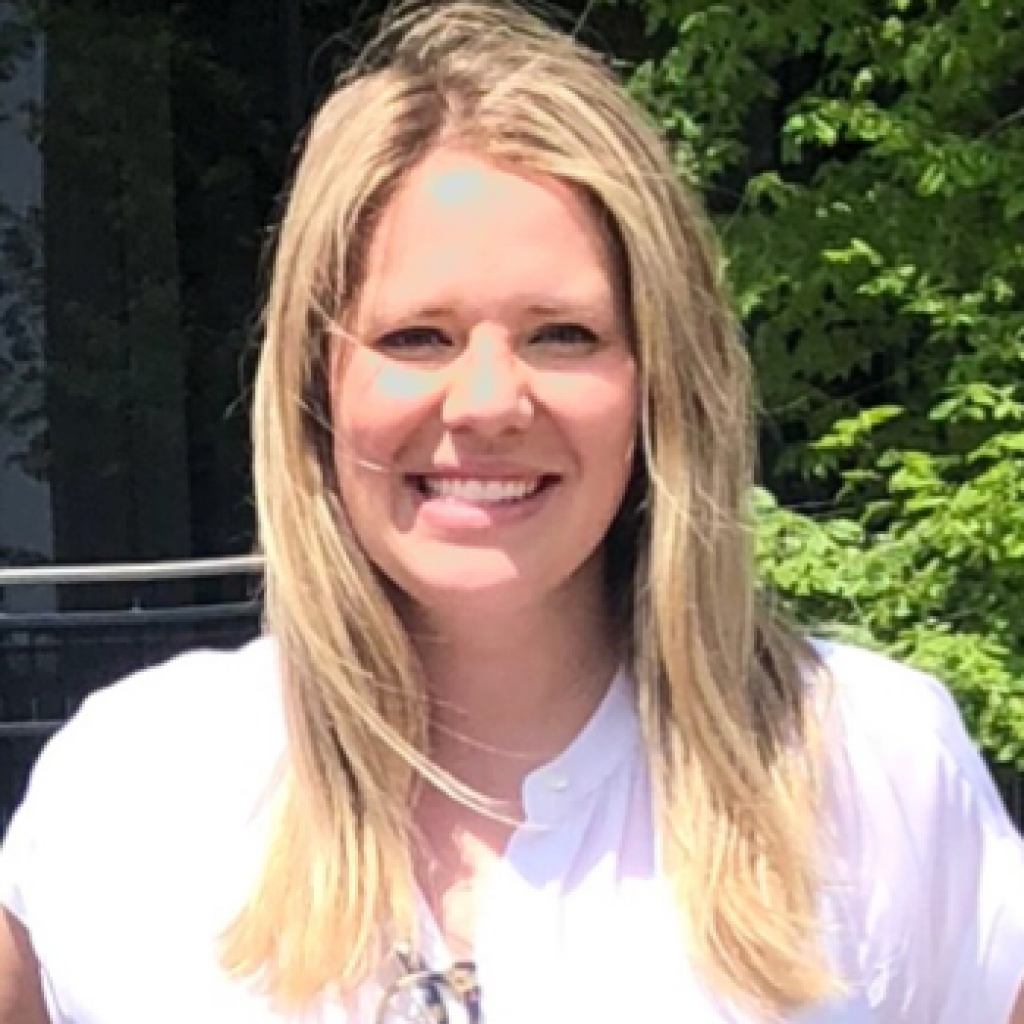
Elsie Moore is a Ph.D. student in the Department of Environmental Health and Engineering at the Johns Hopkins Bloomberg School of Public Health (advised by Dr. Roni Neff). Her research interests focus on understanding equitable strategies that advance sustainable healthy diets. For the past year, she has worked for the Center for a Livable Future on an urban food system resilience project with five cities across the US. Before starting her Ph.D., Elsie worked on several projects related to the United Nations Sustainable Development Goals. Elsie earned her Master in Public Health in Social and Behavioral Sciences from the Yale School of Public Health and a Bachelors in Diplomacy and World Affairs from Occidental College.
Out-of-Zone Enrollment and the Informal School-Choice Market in Baltimore City
Awardee: Kiara Nerenberg, Sociology
Neighborhoods in the United States remain highly unequal, segregated by race, and stratified by family income. Consequently, residentially zoned schools, or “neighborhood schools,” serve as a key site of inequality maintenance in American society. Yet, neighborhood schools are increasingly delinked from their neighborhood surroundings and are instead enrolling many students from outside of their residential catchment areas. This increasing prevalence of out-of-zone enrollment has the potential to disrupt the longstanding relationship between residential and educational inequality, but scholarly attention to out-of-zone enrollment remains limited. Using Baltimore City as a case study, this dissertation seeks to understand the causes and consequences of out-of-zone enrollment. In Baltimore City, almost 40% of students enrolled in neighborhood schools live outside of their school’s catchment area, making this an ideal context in which to evaluate the effects of out-of-zone enrollment. By bringing together longitudinal administrative enrollment data from Baltimore City Public Schools (2013-2019) with geocoded crime data from the Baltimore Police Department (2013-2019), neighborhood demographics from the American Community Survey (2014-2018), and school characteristics from the National Center for Education Statistics (2008-2019), this dissertation examines interrelated dynamics of out-of-zone enrollment at the student, school, and neighborhood levels. Drawing empirical findings together with scholarship from sociology, history, public administration, and education studies, this dissertation expounds a theory of the informal school-choice market that both structures and is structured by out-of-zone enrollments. By illuminating the structure of the informal school-choice market, this study uncovers previously unidentified mechanisms of inequality maintenance in student achievement and district segregation.
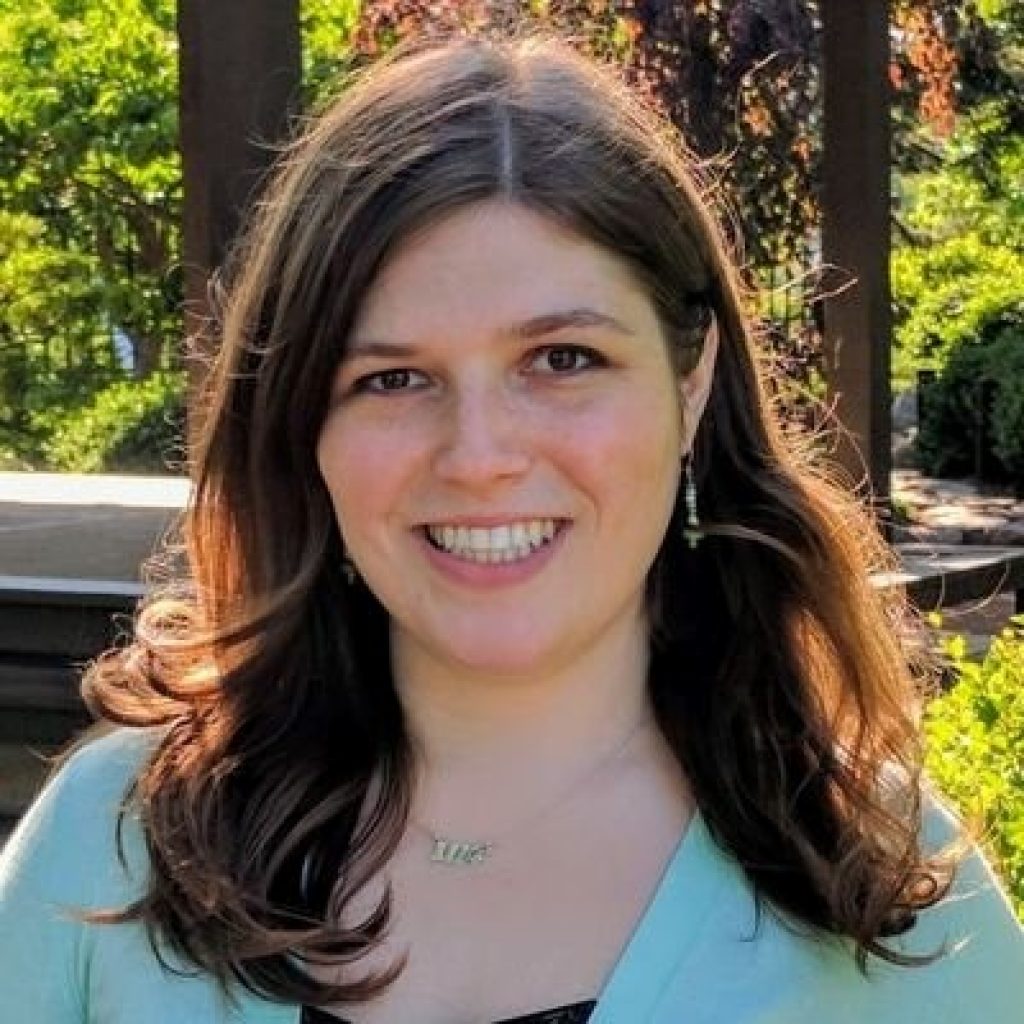
Kiara Nerenberg is a PhD candidate in Sociology at Johns Hopkins University. Her research uses quantitative, qualitative, and spatial methods to understand how residential segregation and spatial stratification shape educational opportunities. Before graduate school, she spent over two years as a research assistant at the University of Chicago Consortium on School Research, where she contributed to research on school closures, charter school policy, and teacher certification. More recently, she has worked with the Baltimore Education Research Consortium to examine causes and consequences of student mobility in the Baltimore region. She also contributes to ongoing research on housing, poverty, and social policy at the Poverty and Inequality Research Lab at Johns Hopkins. Nerenberg holds a bachelor’s degree in sociology from the University of Chicago.
Selective High School Admissions and Effects: How Schools Shape Students High School and Postsecondary Destinations
Awardee: Zyrashae Smith, Education
Selective high schools are one of the various types of high schools found in urban school districts. These schools select the students they enroll through competitive admissions processes which require student to demonstrate their academic abilities, typically through entrance exam scores or prior grades. Selective high school students typically enroll in four-year and selective colleges at higher rates than students at other schools within their districts — outcomes that are associated with increased likelihood of college completion and positive labor market outcomes. Although all students have the opportunity to apply and enroll in selective high schools, researchers suggest that access to these schools is unequal among all qualified students due to inequities within the application process. However, little research has focused on examining inequities in selective high school admission processes and their consequences on students’ educational trajectories to high school and college. In this project, I analyze the extent to which middle grades schools influence students’ eligibility for admission to one of Baltimore City Public Schools’ four selective high schools and how those high schools affect students’ college readiness and enrollment.

Zyrashae Smith studies college access for low-income students. She examines student decisions during the college access process and how education policy, institutional structures, and social dynamics affect those decisions. She is particularly interested in understanding the structural barriers that prevent many college-aspiring students from enrolling at postsecondary institutions. Her research interest stems from being a low-income, first-generation student and her work as a college access advisor at a high school that served predominantly minority and low-income students.
Responding to the Cost of Caring: An Intervention to Support Teachers Experiencing Compassion Fatigue
Awardee: Nicole Tschopp, Education
Responding to the impact of student trauma is highly prioritized in education. Urban public school teachers are frequently front-line responders when their students share the details of their traumatic experiences. However, in this situation, teachers may be at risk for secondary traumatic stress, which can lead to compassion fatigue. Compassion fatigue refers to the cost of caring for another in emotional pain and can result in biological, psychological, and social dysfunction. Compassion fatigue has been studied extensively in helping professionals such as social workers, first responders, and child welfare workers. Even though compassion fatigue is an emerging psychosocial risk in education, there has been minimal research exploring the prevalence and impact on teachers. Highly stressed teachers, such as those experiencing compassion fatigue, may lack resources to manage the social and emotional classroom climate effectively. The purpose of this study is to investigate the feasibility of using a bio-behavioral intervention to support teachers experiencing symptoms of compassion fatigue and to compare outcomes across three participant groups: biofeedback + behavioral intervention; behavioral intervention only; and control. The overarching goal is to learn whether the two treatment approaches can increase resilience in educators by decreasing compassion fatigue symptoms and improving regulation responses to stressful situations as these outcomes may lead to teacher retention and positive student outcomes.

Nicole is an EdD candidate in the School of Education at Johns Hopkins University. Her research examines the impact of compassion fatigue on urban public-school teachers. Additionally, her research focuses on understanding the various effects of compassion fatigue on teachers in their helping role in supporting students, families, and communities and exploring interventions to prevent and ameliorate symptoms of compassion fatigue. She is a licensed clinical social worker who has worked in Baltimore City Public Schools for 14 years. She has infused trauma-sensitive practices within her clinical work with students and families. Nicole played an integral role in securing the Promoting Student Resilience Grant (PSR) from the U.S. Department of Education, where she developed and facilitated professional development training and consultation throughout the district to promote trauma-sensitive and responsive practices. She currently works as an Educational Associate in an elementary school in Southwest Baltimore.
Structural drivers of violent crime in Baltimore City: An Investigation of Historical and Contemporary Practices and Patterns of Racism
Awardee: Mudia Uzzi, Health, Behavior and Society
By the end of 2020, Baltimore City had its sixth consecutive year with over 300 homicides. Moreover recently, Baltimore had its highest annual homicide rate in the city’s history. In the past, Baltimore City officials have leaned heavily on the criminal justice system to address community violence. A series of high-profile scandals involving aggressive and proactive policing by the Baltimore Police Department exposed the limitations to this approach of addressing community violence. An alternative way of examining the causes and developing solutions for gun violence and other forms of community violence is viewing it from a public health lens. Specifically, more research is needed to develop a deeper understanding of the relationship between structural racism and community violence. While researchers have explored some aspects of the relationship between structural factors and violence, many critical questions remain about this association. The proposed research study will fill these research gaps by investigating the relationship between redlining and racialized economic segregation in present-day Baltimore City as well as determining the association of redlining and racialized economic segregation with the spatial distribution of neighborhood violent crime in Baltimore City between 2015-2019. This proposal brings together three historical and contemporary data sources to better understand the impact of structural drivers on community violence in Baltimore City. The findings from this research will inform new violence reduction policies and practices to redress past policies and practices which have contributed to disparities of violence and trauma in Baltimore City.

Mudia Uzzi is PhD Candidate in the Department of Health, Behavior and Society at the Johns Hopkins Bloomberg School of Public Health and a Health Policy Research Scholar with the Robert Wood Johnson Foundation. His current research examines the underlying structural drivers of community violence and trauma in Baltimore City. Some of the topic areas Uzzi explores include redlining, racialized economic segregation, and the build and social environment of neighborhoods. His ultimate goal is to develop research, policies and programs that promote safer and healthier urban communities. Prior to starting his doctoral studies, Uzzi obtained a MSc in Control of Infectious Diseases from the London School of Hygiene and Tropical Medicine and a BA in Biology from Macalester College. He also led on several health equity research and evaluation projects in the United States and United Kingdom.

